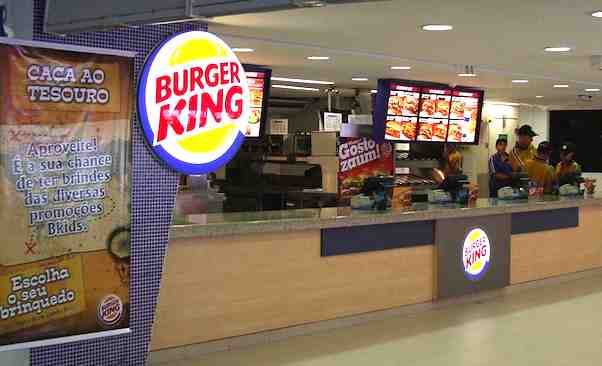
Burger King’s position as a major competitor in the global fast-food restaurant industry comes with expectations on corporate social responsibility (CSR) and environmental, social, and governance (ESG). These expectations relate to Burger King’s stakeholders. Theory indicates that businesses affect stakeholders, who influence business performance in return. Sustainability and other outcomes of CSR and ESG programs ensure competitiveness despite the strategic issues illustrated in the Five Forces analysis of Burger King. Competition with McDonald’s, Subway, Wendy’s, Dunkin’, Starbucks, and other foodservice companies warrants effective stakeholder management for competitive advantages. By integrating stakeholders’ interests into strategic formulation, Burger King optimizes long-term business growth.
Burger King’s corporate social responsibility (CSR) strategy involves programs that address the interests and demands of the most important stakeholder groups. The fast-food restaurant chain adjusts its corporate citizenship strategies and programs to account for market changes that influence stakeholders, such as the industry trends noted in the PESTEL/PESTLE analysis of Burger King.
Burger King’s Stakeholders & CSR/ESG Initiatives
Burger King’s CSR and ESG programs follow priorities in the company’s stakeholder-driven approach: Food, People, Environment and Corporate Governance. With these priorities, Burger King’s stakeholders are:
- Customers (highest priority)
- Employees at corporate offices and restaurants
- Communities
- Investors
Customers. Burger King considers customers as the top-priority stakeholders. This stakeholder group is composed of diners, buyers, and consumers interested in quality food and beverage products and reasonable pricing. In CSR and ESG strategy, customers are significant because they directly determine the revenues of Burger King in terms of demand and purchases.
In response to customers’ interests, Burger King’s corporate social responsibility activities ensure quality food and drinks and transparency in communicating with customers. For example, the company publishes detailed nutrition facts regarding its menu items. Based on these considerations, the company’s corporate social responsibility activities satisfactorily address the interests of customers as the top stakeholder group in the quick-service restaurant chain. The corporate citizenship activities for this stakeholder group align with Burger King’s corporate mission and corporate vision, which establish goals for customer satisfaction.
Employees. Employees are the second-priority stakeholders in Burger King’s approach to corporate social responsibility. The interests of this stakeholder group are career opportunities and fair compensation. Employees are significant in ESG and CSR planning because they affect how Burger King performs in terms of productivity, quality of service, efficiency, and sustainability.
For workers’ interests, Burger King’s organizational culture (company culture) and human resource management emphasize meritocracy. For example, employees’ performance is accounted for in rewards and their career opportunities. With this organizational culture and related HRM programs, the company’s corporate social responsibility strategy effectively integrates the interests of employees as stakeholders in the fast-food business.
Communities. Burger King recognizes the importance of communities as stakeholders. The interest of this stakeholder group is support for community development. In influencing CSR and ESG programs, communities are significant in terms of their influence on consumer perception and employee perception, which are included in public relations in Burger King’s marketing mix (4P).
The company addresses communities’ interests through the Burger King Foundation. For example, the foundation offers funds for educational and related programs in communities. Based on these considerations, Burger King’s corporate social responsibility and corporate citizenship efforts suitably include a major arm for community development to address the interests of this stakeholder group.
Investors. Investors are a fundamental stakeholder group in the quick-service restaurant business. These stakeholders are interested in Burger King’s higher financial performance. Investors are significant because they affect the availability of capital to the foodservice business.
In Burger King’s CSR and ESG case, investors’ interests are effectively addressed through strategic realignment for multinational business growth. The company’s operations as a subsidiary of Restaurant Brands International involve expertise in strategic planning for successful financial performance. Along with Burger King’s competitive strategy and growth strategies, the company’s corporate social responsibility strategy fulfills the concerns and interests of investors as a major stakeholder group.
Burger King’s CSR & ESG Performance in Addressing Stakeholders’ Interests
Burger King’s corporate social responsibility programs are designed to satisfy the interests of the firm’s major stakeholders. The approach that prioritizes customers is appropriate in supporting the company’s aim to grow its foodservice market share. However, ESG and CSR efforts for communities are an area of improvement for Burger King.
Burger King can implement livelihood programs to boost community development. The company can also integrate strategies for ethical, sustainable, and green operations into its corporate citizenship efforts for the purpose of enhancing its corporate and brand image and improving the profitability of its quick-service restaurant business.
The foodservice company’s CSR and ESG strategies use effective business strengths and competencies. For example, the SWOT analysis of Burger King refers to the strength of the company’s market presence, which enables effective communication with target stakeholder groups regarding corporate social responsibility topics, such as corporate citizenship, business ethics, and sustainability.
References
- Burger King Corporate Responsibility.
- Burger King Foundation – Who We Are.
- Burger King Franchising.
- Dos Reis Cardillo, M. A., & Basso, L. F. C. (2025). Revisiting knowledge on ESG/CSR and financial performance: A bibliometric and systematic review of moderating variables. Journal of Innovation & Knowledge, 10(1), 100648.
- Migliavacca, A. (2025). Accounting for Sustainable Business: Integrating CSR and ESG Principles. Routledge.
- Restaurant Brands International Inc. Form 10-K.
- Restaurant Brands International Inc. Sustainability.
- Yasir, M., & Alam, K. (2025). Ethical leadership, green innovation and environmental performance in the restaurant industry. Social Responsibility Journal, 21(5), 1032-1048.